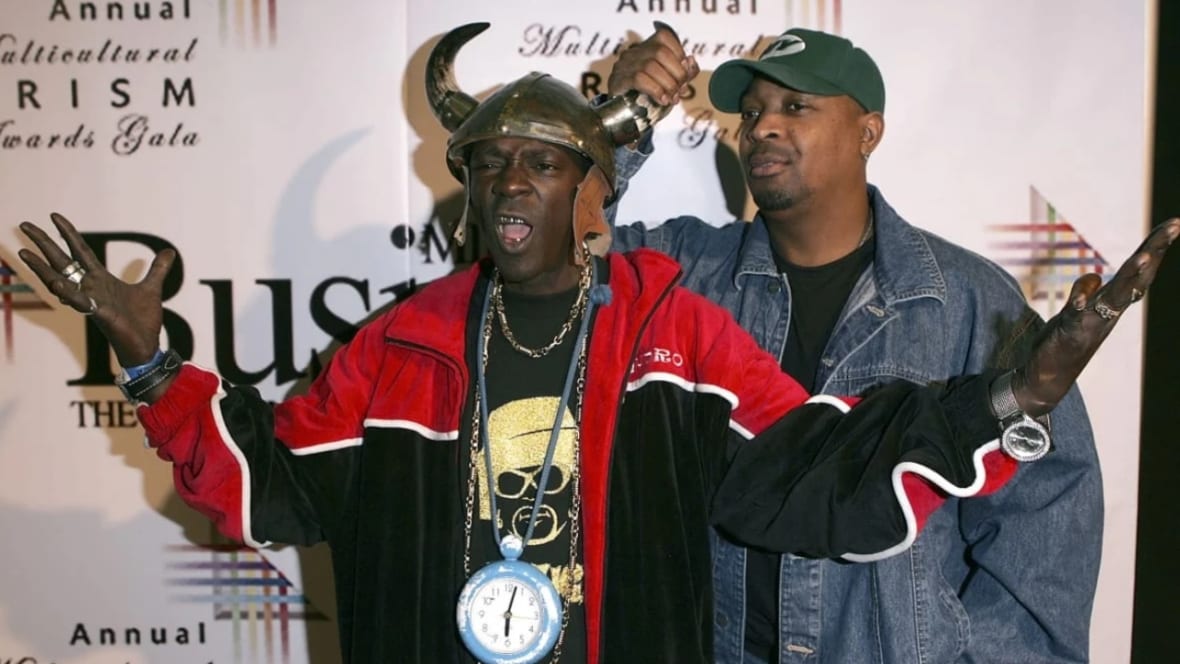When your hype man’s a crackhead: How Public Enemy dealt with Flavor Flav’s addiction
While the group’s leader and co-founder Chuck D was preaching to the Black community to do better, the epidemic had infiltrated Public Enemy.
The Public Enemy 1988 song about crack use, “Night of the Living Baseheads,” was a red alert warning us about its dangers. However, while the group’s leader and co-founder Chuck D was preaching to the Black community to do better, the epidemic had infiltrated PE: The group’s hype man, Flavor Flav, was a crack addict.
Hank Shocklee, Public Enemy’s producer, reveals to Touré, in the latter’s “Being Black: The ‘80s” podcast, details of the group’s dilemma: recording an anti-crack song with a crackhead.
The following is a partial transcript of the conversation.

DJ Vlad: Was it a little strange doing an anti-crack song like “Night of the Living Baseheads” and actually, behind closed doors, you were actually on drugs herself?
Flavor Flav: Honestly, to tell you the truth, I didn’t have no guilty feeling about it because I ain’t gonna lie around that time. Yeah, man, I was going, like, 180 miles an hour, man, with that drug shit, with that coke and crack shit. You know what I’m saying? That was one of the worstest [sic] mistakes that I could have really ever made with them with my life. You know what I’m saying? Experimenting with drugs and shit. Let me tell you something, man. Drugs, them shits is real easy to get on. And they are hard as hell to get off.
Touré: The group knew he had a problem.
Touré: Did you know that Flavor had a drug problem at the time when you were making a record decrying the crack problem in the community?
Hank Shocklee: Oh, yes and no. (Laughter) Yes. When? When we needed something to be done, it was critical, and we couldn’t find him. And no, that we didn’t want to really allow that to occur, to hold him back or hold us back.
Touré: You knew, but you didn’t really want to know.
Hank Shocklee: Well, let me let me push that to another level is that we can’t … we knew what we did not want that for him, for that to be his. The stigma for him. Think about it as unconditional love. It’s like you got it … it’s like you have to sometimes you have to embrace the chaos. You got to embrace the noise. You have to embrace the things that you are uncomfortable with. Yeah, we was uncomfortable with that, but we could not allow that to become a situation that holds him back or us back. So it’s kind of like us pulling our younger brother up, so to speak.
Touré: OK.
Hank Shocklee: And that’s that, to me is an area that I think that we need more of. It’s like, OK, we know what the fuck you going through? We know what you’ve been through. I understand that we have a different philosophy and a different understanding of things, but we have a mission. And our mission is for us to be together. And the idea of Flavor – Flavor is probably the most important character in the group.
Touré: Well, Chuck’s the most important.
Hank Shocklee: No, Flavor is. And why? Because. Because Flavor gives illumination to Chuck. Without Flavor, Chuck is too much the same thing. It’s like, OK, we heard that before. Flavor gives it animation. It’s the thing where the supporting character makes the starring character. And without those – so they both become characters. That’s why both Chuck and Flav, if you put them both together, they create a chord. Flavor represent the street life, Chuck represented the more educated life, and bringing the two together creates a chord of unity. And this is what makes …made PE powerful.
Listen to all episodes of “Being Black: The ’80s” on theGrio Black Podcast Network.
TheGrio is FREE on your TV via Apple TV, Amazon Fire, Roku and Android TV. Also, please download theGrio mobile apps today!

